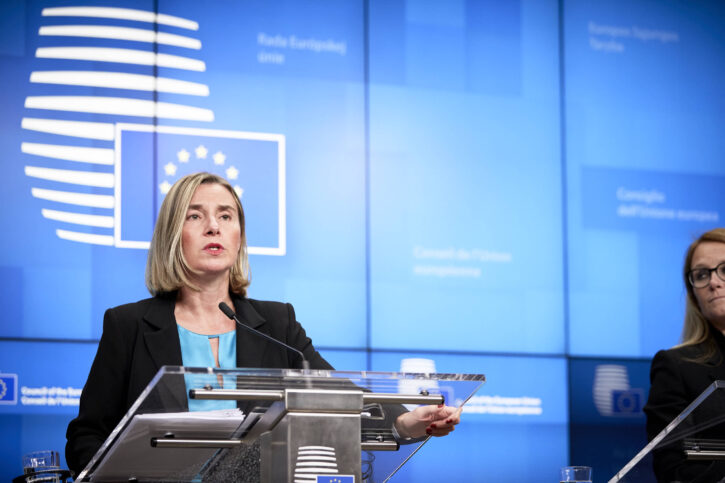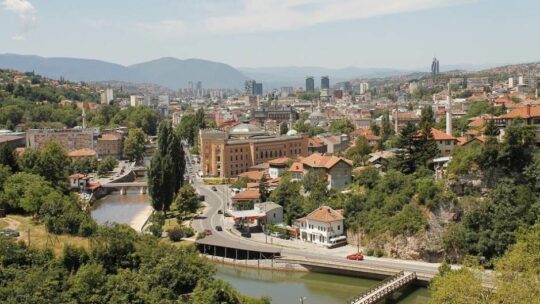
The election issue in Bosnia and Herzegovina need to be addressed but the post-election government formation is a priority, according to European Union's (EU) head of diplomacy, Federica Mogherini, who addressed media on Monday following the session of the EU Foreign Affairs Council (FAC).
“We need to first of all encourage the political leaders to assume the responsibility to rapidly form governments to take forward to reform agenda. I'm one of those that has seen the unexpected positive steps that Bosnia and Herzegovina has managed to put in place since 2014 to this year,” Mogherini told a press conference after a FAC session that among other issues discussed the situation in the Western Balkans, including Bosnia.
The issue of election law can be “addressed in a cooperative manner” once the governments are formed and reform agenda put back on the track, according to Mogherini.
Electoral reform in Bosnia has been a burning issue for more than a two years, when the Constitutional Court ruled that some parts of Bosnia's Election Law were inconsistent with the Constitution.
Although the court set a clear deadline for the law to be amended, political disagreements caused that the law parts treating the selection of delegates in the House of Peoples of Bosnia's Federation (FBiH) entity have not been changed to date.
The issue was particularly problematised by the ethnic Croats in Bosnia who claim that these law provisions prevent their legitimate representatives from being elected in the state institutions.
Although the court's decision, passed upon the motion of Croat politician Bozo Ljubic, did not treat the election to the state tripartite Presidency, it was often used for the purpose of emphasising that such law enables one ethnic group to elect a Presidency member to another.
Bosnian Croat leader Dragan Covic, who lost to his main rival, left-leaning candidate Zeljko Komsic in the run for the Presidency, blamed the current legislation for the loss. He and his nationalist Croat Democratic Union (HDZ BiH) claimed Komsic's win, although in line with Bosnian law, was illegitimate and that he was elected mostly owing to the votes of the other major ethnic group, the Bosniaks.
Covic, whose HDZ BiH won a significant number of seats in parliaments at all levels, said immediately after the October 7 general election that the government cannot be formed before the law is amended.
Although the need for electoral reform was strongly emphasised, Mogherini put the government formation and the reform agenda in the forefront.
“I'm confident that leaders in the country, as well as the people in the country, can move forward on the reform agenda in a united matted, this is what we wish to see,” Mogherini added.
As for the electoral reform and the way this matter should be solved, the EU's senior official commented briefly.
“Somehow, finding the right balance – and I understand this is a diplomatic exercise – between the need to reconcile the country's unique set-up and the European Union standards,” she said.




